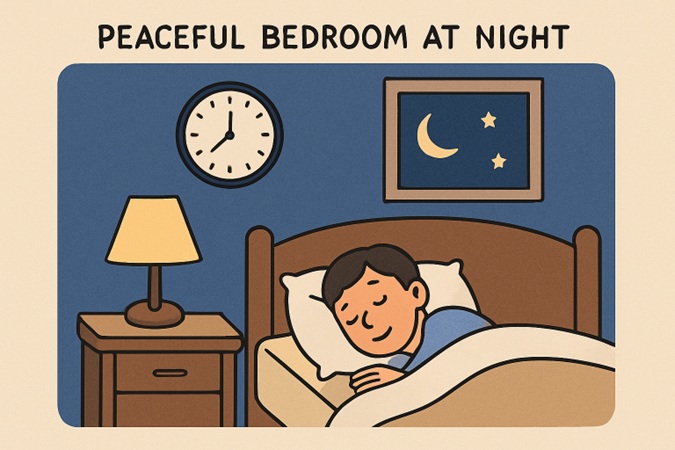Table of Contents
What Is Sleep Medicine?
A good night’s sleep is foundational for clear thinking, a stable mood, and overall health. Sleep medicine is a specialized field dedicated to identifying, preventing, and treating sleep disorders using scientific methods and advanced diagnostics. When symptoms such as persistent insomnia or excessive tiredness begin to disrupt daily life, tools like EEG testing Houston TX can be crucial in pinpointing underlying causes and guiding targeted treatment plans.
The impact of sleep difficulties extends far beyond simple tiredness, influencing cardiovascular health, cognitive abilities, and emotional well-being. Expert intervention is essential for millions who struggle with chronic sleep issues. By seeking support from sleep medicine professionals and utilizing modern diagnostic methods, individuals can move closer to consistent, restorative rest and improved health outcomes.
Understanding the basics of sleep medicine empowers individuals to recognize the signs of poor sleep and explore the range of effective therapies now available.
Professional sleep medicine providers rely on a combination of patient history, physical examination, and advanced diagnostic techniques to accurately assess and treat sleep issues. The latest advancements make it more convenient and accessible than ever to pursue sleep health — an essential part of a thriving life.
Common Sleep Disorders & Their Effects
Several sleep disorders are prevalent and can be highly disruptive if left unmanaged. Insomnia, for example, leads to persistent difficulty falling or staying asleep, causing chronic fatigue and decreased productivity. Obstructive Sleep Apnea disrupts breathing during sleep, increasing risks for high blood pressure, heart disease, and stroke. Restless Leg Syndrome triggers uncomfortable urges to move the legs, often ruining a calm bedtime routine. Meanwhile, Narcolepsy can cause uncontrollable episodes of falling asleep during the day, which undermines work and safety.
Research consistently underscores the health risks associated with untreated sleep disorders, highlighting the urgency of early recognition and intervention. According to the Centers for Disease Control and Prevention, chronic poor sleep is linked to a host of long-term medical concerns—ranging from diabetes to depression.

Signs You Might Need Sleep Help
Most people experience the occasional bad night’s sleep, but recurring issues may require professional support. Warning signs include frequent daytime sleepiness, constant trouble falling or staying asleep, loud snoring, waking up abruptly while gasping for air, or feeling unrefreshed after a full night’s sleep. If you notice these patterns, don’t brush them aside—a steady lack of rest can build severe complications over time.
Sleep issues can affect anyone, regardless of age or lifestyle. Ignoring symptoms may reduce your quality of life and contribute to long-term physical and mental health consequences.
The Role Of Sleep Specialists
Sleep specialists receive thorough training in sleep science and are skilled in diagnosing and treating various sleep disorders. They analyze detailed sleep histories, perform physical assessments, and may order overnight sleep studies or other noninvasive tests to pinpoint the source of a problem. This personalized approach enables the development of treatment plans that are tailored to each patient’s unique needs and circumstances.
By working closely with a specialist, patients can clarify their sleep challenges—whether they stem from medical, psychological, or environmental causes—and receive the most effective care strategies for lasting change.
Modern Approaches To Sleep Therapy
Advancements in medicine and technology have transformed how sleep issues are addressed. For many people with insomnia, Cognitive Behavioral Therapy for Insomnia (CBT-I) is the preferred treatment, teaching patients how to reframe thoughts and behaviors that interfere with sleep. Meanwhile, those with sleep apnea may benefit from CPAP devices that keep airways open overnight. Many clinics also offer in-home sleep studies, increasing convenience while upholding accurate diagnoses.
Technological progress—such as smart sleep trackers and telemedicine consults—enables individuals to better monitor their rest and receive professional feedback from the comfort of home. These methods support a holistic, patient-centered approach to sleep health.
Lifestyle Tips To Support Healthy Sleep
- Stick to a consistent sleeping and waking schedule—even on weekends.
- Wind down with a calming pre-sleep routine, such as light reading, meditation, or gentle yoga stretches.
- Limit intake of caffeine, alcohol, and heavy meals in the hours before bedtime.
- Transform your sleep environment: keep your bedroom quiet and dark.
- Avoid screens and blue light exposure at least an hour before bed; consider reading a physical book or listening to soft music instead.
These evidence-backed habits promote a smooth transition into restful sleep and can help improve both the quality and duration of sleep over time.
When Should You Seek Professional Support?
Suppose you find that sleep difficulties persist despite good hygiene or experience symptoms such as persistent snoring, regular morning headaches, or constant daytime fatigue. In that case, it’s important to consult a sleep specialist. Persistent sleep disturbances, especially those lasting more than a month or accompanied by signs of sleep apnea or narcolepsy, should always be evaluated by a professional. Early and expert intervention is key to better long-term health.
Resources & Next Steps
For those looking to educate themselves further, the Sleep Foundation provides comprehensive, evidence-based articles and tips for improving sleep habits and understanding the spectrum of sleep disorders. The Mayo Clinic’s sleep disorder resource page is another reputable destination for learning about sleep-related symptoms and treatment options.
Taking charge of your sleep health through lifestyle changes, professional support, and ongoing learning can transform your mood, mental clarity, and physical vitality. Prioritizing quality sleep is a vital step toward enhanced well-being and productivity, both now and in the future.







No Comments